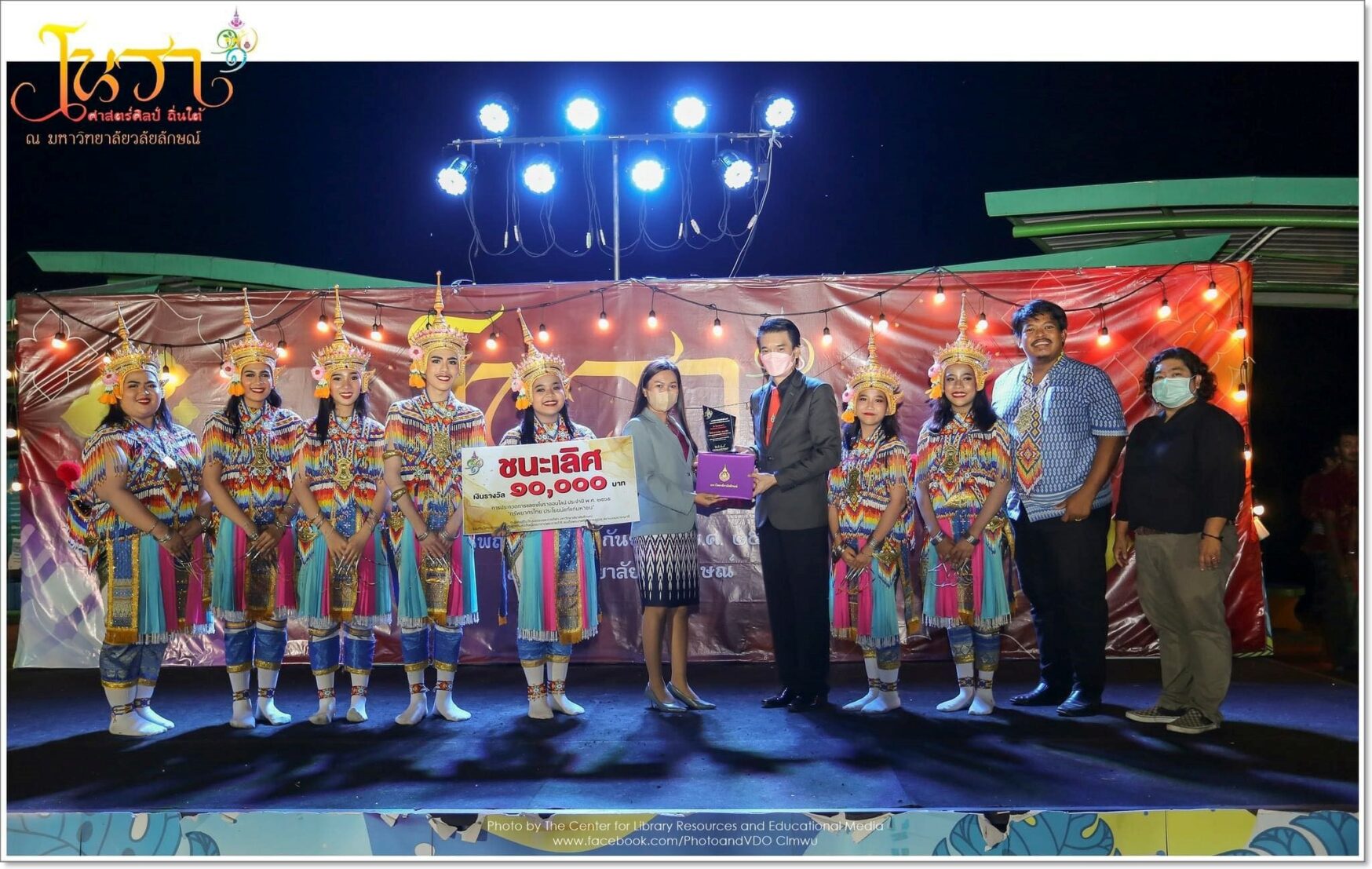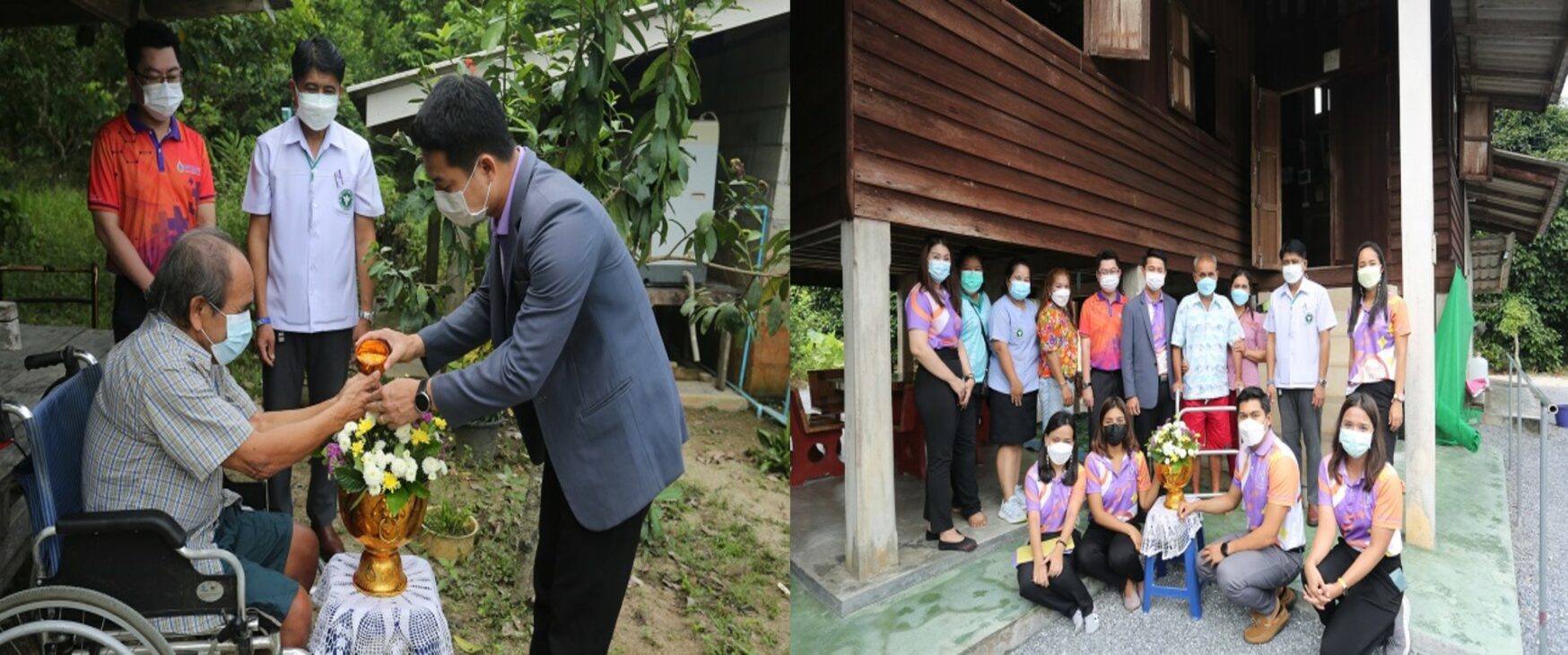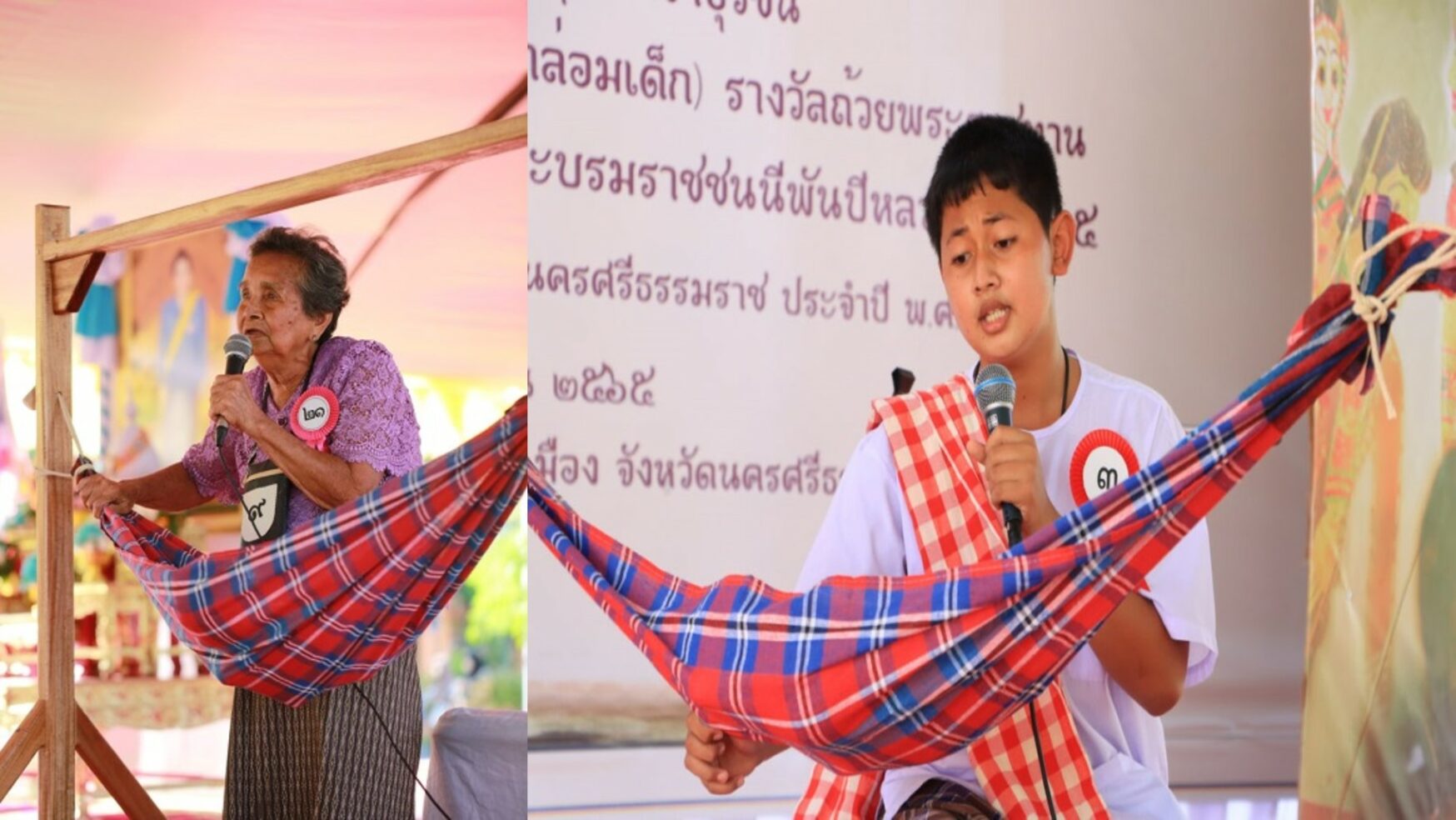Walailak University Recording and Preserving the Cultural Heritage of Local, National, and Indigenous Community Legacies
Walailak University places great significance on the record and preservation of local, regional, national cultural heritage, and the heritage of displaced communities in all dimensions, including folklore, tradition, language, and knowledge. This is carried out in a way that aligns with the university’s goals and societal changes, ensuring that the conservation of cultural heritage at the local level can be continued and sustained amidst the evolving society.

In 2022, WU worked to promote Nora performing arts, a national cultural heritage, by collaborating with various organizations under key strategies focused on raising awareness and perception of Nora performing arts among the youth. They encouraged learning, exchange, cooperation, and networking between the university, communities, and schools. This was achieved through online learning platforms that led to the sustainable publicity and preservation of Nora’s performing arts. The promotion included an online Nora competition with the theme of “Thai Cultural Resources: A True Benefit to the Public.” The aim was to educate and train the youth to perform Nora and establish Nora groups, leading to the sustainable preservation of Nora performing arts. Furthermore, WU adjusted the approach to promote arts and culture to align with societal changes in the digital age. The Nora Performing Arts Course Online is a free program that can be accessed through https://acc.wu.ac.th/. It offers four different courses, allowing participants to choose based on their interests and abilities: Nora Dance Course, Nora Music Course, Nora Vocal Performance Course, and Pran Nora (Hunter Figure in Nora) Course. Moreover, awards were presented at the Nora: The Southern Thai Arts and Culture competition on September 1, 2565, at the Bota Green Market Chic & Chill, showcasing the talents and achievements of participants in the Nora Performing Arts Course Online.

In 2022, WU, in collaboration with the surrounding community, organized the Songkran Festival to celebrate the local or regional traditions of Southern Thailand. With the spread of Covid-19, the event was divided into two parts:
- “Walailak Songkran Delivery”: This activity involved bringing happiness to the local community. The university traveled to visit and participated in the water-pouring ceremony for the elderly in the community. This ritual is known as “Rod Nam Dum Hua.”
- The Songkran Revival Project: April 7-8, 2022, the event was organized including the water-pouring ceremony for the elderly within the university campus. This event not only aimed to revive Thai traditions during the Songkran Festival but also to foster cooperation among the university members and demonstrated respect for them. This ceremony has been a cherished cultural norm in Thai society for a long time.

In 2022, the university focused on preserving and promoting the local or regional literature of the southern region of Thailand, specifically the Thai Southern cradle songs. This form of literature is known as “Oral Literature,” which is an oral tradition passed down through generations in the form of folklore and not recorded in the form of writing. The evolution of the Thai Southern cradle songs represents the transmission of ideas, knowledge, events, and teachings from one generation to the next. Additionally, these songs often address societal issues that occur during the ancestor’s periods. They also reflect the culture and popular sentiments of that era. The university organized a competition for Thai Southern cradle songs, which took place on September 27, 2022, at the Cultural Stage in the Cultural Square, Mueang District, Nakhon Si Thammarat. The competition was divided into two categories: one for youth under 18 and another for adults and the general public aged 19 and above.

The university prioritizes the heritage of displaced communities, particularly through the construction of the “MANIQ ETHNOGRAPHIC MUSEUM,” which showcases the way of life of the “Maniq” people. The Maniq are an ethnic group that relocated to the southern region of Thailand. The museum is designed to facilitate learning about their life, culture, and beliefs. The MANIQ ETHNOGRAPHIC MUSEUM provides a comprehensive and detailed presentation of the Maniq people’s way of life, making it the most particularized in Southeast Asia.
Within the museum, there are five learning zones: Introduction to the Maniq Ethnics in Southern Thailand, The Homes of the Maniq, Maniq Hunting and Gathering Techniques, Traditional Medicine and Healthcare Among the Maniq, and Beliefs and Rituals of the Maniq Ethnics. These learning zones offer valuable insights into the lives, culture, and traditions of the Maniq people in Southern Thailand.


Related links of evidence:
https://wwwuat.wu.ac.th/th/news/21741/
Goal 11 : Sustainable cities and communities
Goal 4: Quality education
Goal 17: Partnership for the goals

